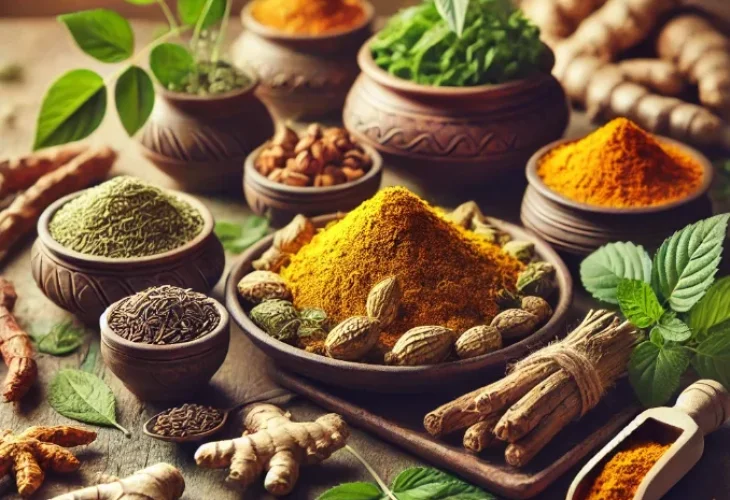7 Indian Healing Herbs Backed by Science
Globally recognized studies reveal the remarkable benefits of Indian medicinal herbs you need to know.

Research into Indian medicinal herbs is gaining momentum, especially with the growing popularity of Ayurvedic medicine and the increasing interest in natural remedies for health and wellness. In 2023-2024, new studies have been published, showcasing the health benefits of Indian herbs across various domains. Here's what the latest findings reveal.
Ashwagandha (Withania somnifera)
Popularly known as "Indian ginseng," Ashwagandha is among the most studied herbs in Ayurvedic medicine.
A 2023 study published in *Nutrients* examined Ashwagandha's effects on reducing stress and improving sleep quality. Participants who consumed Ashwagandha reported significant stress reduction and better sleep quality compared to the control group.
Another study from 2023 explored Ashwagandha's impact on athletes, finding that the herb enhanced physical performance and endurance among the participants.
Turmeric (Curcuma longa)
Turmeric, a staple in Ayurvedic medicine, is renowned for its anti-inflammatory and antioxidant properties.
A study in the *Journal of Clinical Medicine* found that curcumin supplements (the active component in turmeric) help reduce symptoms of arthritis and other inflammatory conditions, alleviating pain and improving mobility.
Moreover, another clinical study published in *Phytotherapy Research* suggested that turmeric might also reduce signs of depression and anxiety, thanks to its antioxidant capacity and support for the nervous system.
Tulsi (Ocimum sanctum)
Known as "Holy Basil," Tulsi is a vital herb in Indian medicine.
Recent research highlights Tulsi's stress-relieving properties, making it popular in medical use. A 2023 study in *Frontiers in Pharmacology* found Tulsi can bolster the immune system and reduce respiratory infections' risk. Participants showed improved immune function and fewer seasonal illnesses. Additionally, it supports cardiac function and lowers blood pressure.
Guggul (Commiphora wightii)
An ancient herb in Ayurvedic practice, Guggul is mainly used to manage high cholesterol and inflammation. A study published in *Lipids in Health and Disease* found that Guggul significantly reduces LDL cholesterol levels, thus contributing to better heart health.
Neem (Azadirachta indica)
Neem is known for its antibacterial and antifungal properties in Ayurvedic medicine. Research in the *Journal of Ethnopharmacology* states that neem extracts can aid in treating fungal infections and various skin conditions, as well as reduce skin inflammation.
- Another study investigated neem's effectiveness in treating gum diseases, showing a significant reduction in bacteria responsible for periodontal inflammation.
Brahmi (Bacopa monnieri)
Also known as "Water Basil," Brahmi is a herbal remedy for memory enhancement and brain function. A 2023 clinical study in the *Journal of Alternative and Complementary Medicine* showed that Brahmi consumption improved memory and cognitive functions in healthy adults, reinforcing its role in brain health maintenance.
Amla (Phyllanthus emblica)
Amla, or "Indian gooseberry," is a rich source of Vitamin C and antioxidants, used to boost the immune system.
A study in *Nutrients* found Amla improves blood sugar levels in individuals with type 2 diabetes, thereby enhancing patient health. Amla significantly influences liver function and minimizes oxidative damage caused by an unhealthy lifestyle.

